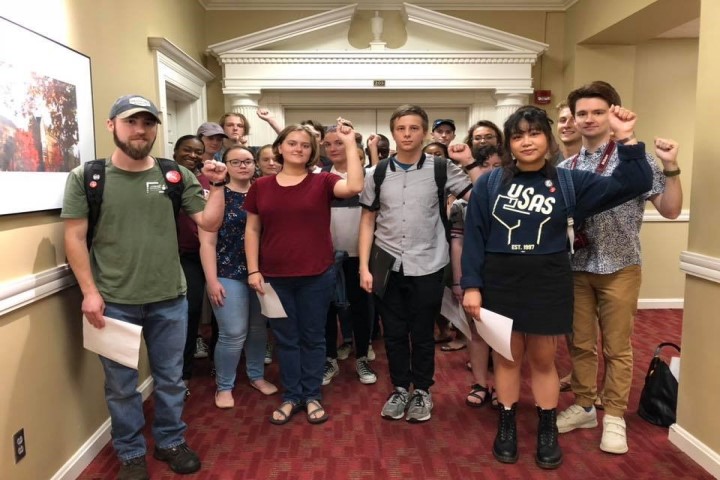Students for Fair Labor at the University of Alabama believe garment workers in El Salvador are being exploited by apparel manufacturers, so they’re pressuring university officials to do something about it.


Students for Fair Labor at the University of Alabama believe garment workers in El Salvador are being exploited by apparel manufacturers, so they’re pressuring university officials to do something about it.
“Our overall goal is to make multinational companies accountable to the people that they exploit who work on university campuses, in our communities and in the overseas factories where collegiate apparel is produced,” the group’s leader, Amber Chan, told The Crimson White student newspaper.
Chan explained that the University of Alabama licenses its logo to a Miami, Florida-based company called Vive La Fete, which manufacturers children’s clothes at factories in El Salvador. The company doesn’t sell clothes at the school, but does sell clothes with the university logo online.
Students for Fair Labor contends women embroidery workers are treated poorly by Vive La Fete, and the group has demanded the company pay them $1.2 million in back pay, pension, vacation days, health benefits and allow the women to form a union. Students contend the women are grossly overworked and underpaid.
The group also pressured the Student Government Association to call on the University to put Vive La Fete “on notice” by reiterating SFL’s demands to the company, according to the news site.
SFL students delivered the letter from the student government to President Stuart Bell’s office in late September and promised campus activism would “escalate in various ways” if the University fails to act on the group’s demands, Chan said.
Convincing the University to end its licensing agreement with Vive La Fete is the SFL’s ultimate goal.
“We’re just trying to keep The University of Alabama accountable for the kinds of businesses that they deal with,” said junior SFL member Rivers Jackson. “And then also just seeing that human beings are treated equally and fairly, specifically workers, and make sure their human rights are met.”
University officials have not yet responded to the students’ requests, which follow a long line of similar activism on college campuses that dates back decades.
And regardless of whether folks agree with the effort, the tradition can have a significant impact on students because “it is through experience that students participate in moral community and practice moral action,” according to James Davison Hunter, founder of the Institute for Advanced Studies in Culture.
In his book, “The Death of Character,” Hunter wrote, “Experience is always a precursor to the possession of character and practical wisdom.”
The Alpha Omega Academy, a Christian online academy, provides “Ways to Grow Student Involvement in Community Service” to help parents and educators get student engaged in volunteer and service work.
“Often volunteering is a reflection of a strong emotional connection to a cause that’s personally affected an individual,” the guide advises. “Find what your student is passionate about first; without a driving focus, his enthusiasm to help will quickly fade.”
“The deeper your student feels the need, the more likely he will act to better the world around him,” according to the site.